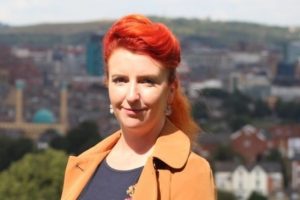Call to develop a community business leadership programme to support vital sector

A new community business leadership programme should be piloted in the Liverpool City Region (LCR) to cultivate the next generation of community leaders.
That is the findind of a major report by the University of Liverpool’s Heseltine Institute for Public Policy, Practice and Place, published today, March 25.
The Heseltine Institute’s Dr Alan Southern was grant-funded by Power to Change – an independent charitable trust that supports and develops community businesses in England – to assess the role of community businesses across Merseyside, and suggest ways in which their influence could be strengthened.
Working alongside Helen Heap, Heseltine Visiting Fellow and CEO of Liverpool-based social investor, Seebohm Hill, the research team produced the report: Growth, sustainability and purpose in the community business market in the Liverpool City Region.
It recommends:
- The establishment of a new community business leadership programme pilot to link social purpose and community activism
- The initiation of a medium-term plan to support growth-oriented community businesses and increase the number of community businesses across the region, particularly in under-represented areas, such as Knowsley
- Ensuring community business representatives are part of wider social economy networks, particularly the emergent LCR Social Economy Panel
- Using the methodological framework to assess the sustainability of community businesses elsewhere, to consider the effect of interventions, and test the notion that community businesses deliver change where most needed.
The report found that LCR is home to at least 84 community businesses, with an annual turnover of £22m, net assets of £38m and more than 600 paid staff.
But distribution is heavily skewed towards the city of Liverpool, leaving the other five boroughs under-represented.
Almost two-thirds of the region’s community businesses are located in postcodes defined as being among the 10% most deprived nationally.
Finance-based community businesses play a key role in the region. In total, the report found 11 credit unions in operation, providing a vital function for residents in some of the country’s poorest areas.
But less than half (44%) say they are confident in their financial position looking ahead 12 months (in comparison with 66% of community businesses nationally), and the same proportion were found to have low financial resilience, meaning they would be vulnerable if they suffered a reduction in income as they do not hold enough capital to cover monthly expenses.
However, fixed assets, like buildings, were found to be a major catalyst for growth.
Community businesses with the most tangible fixed assets, such as those in the housing sector and community hubs, were the most profitable.
Having assets often delivers security in tenure as well as enabling organisations to borrow money to develop and sustain themselves.
A higher proportion of community businesses in the region have also expanded over the past year, compared with the rest of the social economy.
Dr Southern said: “We know the community business sector in LCR has clear strengths with some very entrepreneurial people at the helm.
“We also know that finance, investment and management capacity will be critical for future development and that this, in turn, will help local communities.
“To make this even more impactful we can, with the right will, build a new generation of community business leaders.
“We could pilot a new community business leadership programme to draw out the entrepreneurial drive of a whole number of younger community activists.”
Seebohm Hill chief executive, Helen Heap, said: “If we are to achieve economic growth where the benefits are shared by as many people as possible across the LCR, then our community businesses must be supported to play their full part.
“With this research we highlight the vital work done by community hubs, credit unions and other community businesses.
“We now have a detailed evidence base which can be used by companies, policymakers and funders to support community businesses in the region, so that they can improve their sustainability and contribute to the delivery of inclusive growth.”
Power to Change chief executive, Vidhya Alakeson, said: “From pies at Homebaked, to restored homes in Granby Four Streets, community businesses in Liverpool are transforming the city and we are incredibly proud to have helped support the movement so far.
“This important research underlines how valuable these community businesses are and highlights what a big difference assets can make to their long term viability.
“We are now hoping to expand on this work and use the methodology to map community businesses in other areas of the country.”
The report defines a community business as an enterprise that is locally rooted, trading for the benefit of the local community, is accountable to the local community and achieves broad community impact.







